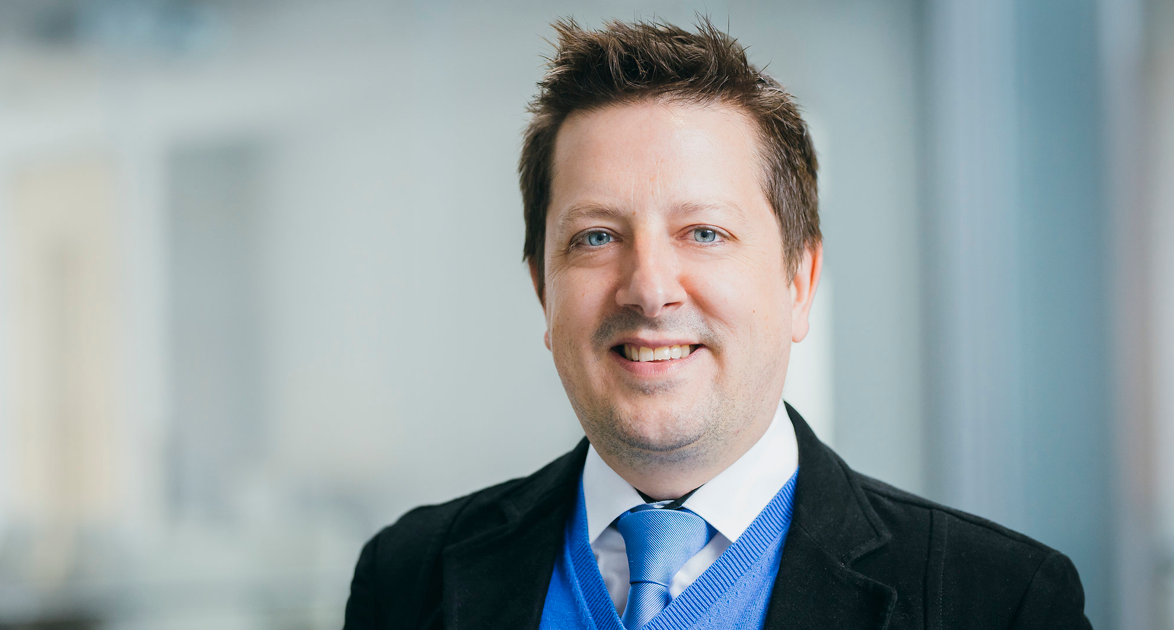Professor Frédéric Leblond has received funding from the Canada Foundation for Innovation and the Government of Québec for a research project to create a biofluid characterization platform using Raman spectroscopy. The purpose? To develop a saliva test to detect coronavirus in under two minutes.

Full professor Frédéric Leblond, of the Department of Engineering Physics and researcher at the Centre de recherche du Centre hospitalier de l’Université de Montréal – CRCHUM, has received $346,901 in funding from the Canada Foundation for Innovation (CFI) Exceptional Opportunities Fund, with an added contribution of $201,267 from the Government of Québec. A total amount of $548,168 in government support will be used for the research project’s infrastructure, maintenance and operation.
Professor Leblond and his team will use the new research infrastructure to create a saliva-based, reagent-free, rapid screening test for COVID-19 that could overcome the limitations of currently-used techniques, in turn facilitating self-sampling and accessibility. The platform in development will analyse saliva in under two minutes, using Raman spectroscopy to identify biomolecules (lipids, proteins, DNA/RNA, specific amino acids) after laser illumination. The method is non-destructive, non-ionizing and does not rely on targeted molecular ligands, thus eliminating the need for external reagents.
The test-development methodology could be rapidly adapted to other infectious diseases, offering improved capability to address mass testing for other waves of COVID-19, but also for future outbreaks that pose serious threats to the functioning of airports, schools and workplaces.
Research infrastructure and results could also have potential applications for detecting other infectious diseases, such as seasonal influenza and measles. Further, biofluid analysis based on Raman spectroscopy can be adapted for blood, urine, and tears, as well as being used in hospitals to ensure that health professionals don’t spread infections between patients. In addition, an innovation developed by Professor Leblond and his team could be extended to other workplaces and thus help reduce the impact of epidemics in professional settings.
Polytechnique Montréal is one of 52 universities, hospital research centres, CÉGEPs, and colleges that have received support from the CFI’s Exceptional Opportunities Fund. The CFI recently announced a federal investment of more than $28 million in state-of-the-art laboratories and equipment for 79 research projects.
“Canadian researchers and scientists are helping to protect our health and safety, and are key to finding our way out of the COVID-19 pandemic,” said Honourable Navdeep Bains, Canada’s Minister of Innovation, Science and Industry. “With this funding through the Exceptional Opportunities Fund, the Government of Canada is ensuring these talented Canadians have the equipment and tools to support their very important work.”
CFI President and CEO Roseann O’Reilly Runte stated: “Canadian researchers’ immediate response to the pandemic has demonstrated the research community’s crucial role in helping to resolve this crisis. Working to find a vaccine, to learn about how COVID-19 affects the human body, or to study how this pandemic has influenced every aspect of our lives, Canada’s researchers have taken centre stage as our guides and our source of hope. The CFI is proud to support their efforts by equipping them with the research infrastructure they need to further their important work.”
The Canada Foundation for Innovation
Created by the Government of Canada in 1997, the Canada Foundation for Innovation aims to build Canadian researchers’ capacity to undertake world-class research and technology development. CFI’s investments in state-of-the-art facilities and equipment allow universities, colleges, research hospitals, and non-profit research institutions to attract and retain the world’s best researchers, train the next generation of scientists, support private-sector innovation and create quality jobs that strengthen Canada’s position in the knowledge economy.




 A unique international forum for public research organisations and companies to connect their external engagement with strategic interests around their R&D system.
A unique international forum for public research organisations and companies to connect their external engagement with strategic interests around their R&D system.